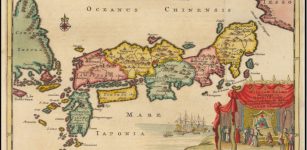On This Day In History: Alexander The Great Died In Babylon – On June 11, 323 BC
AncientPages.com - On June 11, 323 BC, Alexander the Great, son of King Philip II of Macedon, died in Babylon after suffering ten days of high fever.
Theories concerning his cause of death have ranged from poisoning to malaria to meningitis to bacterial infection from drinking contaminated water (among others).
According to Plutarch, Alexander entertained his fleet 14 days before his death.
Admiral Nearcus, one of the officers, a navarch in the army of Alexander the Great, his friend Medius of Larissa, and many others participated in this entertainment.
This meeting ended dramatically. Alexander fell into a fever from which he never recovered.
When asked who should succeed him, Alexander said, "The strongest," which led to his empire being divided between four generals: Cassander, Ptolemy, Antigonus, and Seleucus (known as The Diadochi or `successors').
Alexander became king upon his father's death in 336 BC and conquered most of the known world of his day.
He is known as 'the great' both for his military genius and diplomatic skills in handling the various populaces of the conquered regions.
He is further recognized for spreading Greek culture, language, and thought from Greece throughout Asia Minor, Egypt, and Mesopotamia to India, thus initiating the "Hellenistic World" era.
AncientPages.com





















